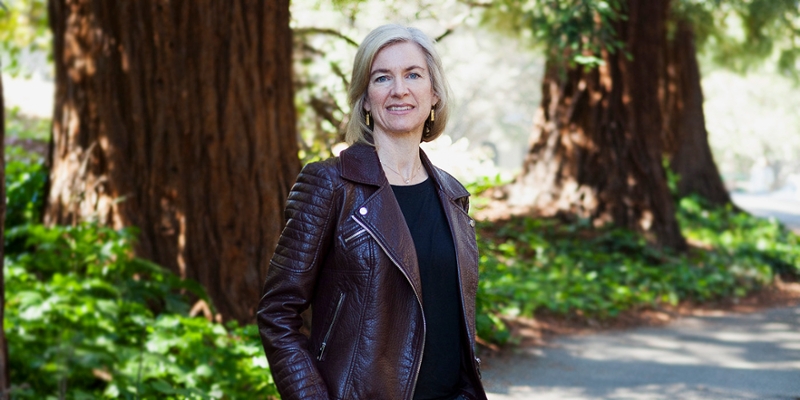CRISPR Biochemist Doudna Wins CMU’s Dickson Prize in Science

Carnegie Mellon University has awarded its Dickson Prize in Science to Jennifer A. Doudna, professor of chemistry and molecular and cell biology at the University of California, Berkeley. Doudna is best known for her contributions to developing the gene editing technology CRISPR/Cas9.
Doudna will accept the award, which includes a cash prize and medal, and present the Dickson Prize Lecture Wednesday, Jan. 31 at 4:30 p.m. in Rangos 1 on the second floor of the Jared L. Cohen University Center. The lecture, titled “CRISPR Systems: Nature’s Toolkit for Genome Editing,” is free and open to the public, with a reception afterward in Rangos 3.
Doudna, along with Emmanuelle Charpentier, now director of the Max Planck Institute for Infection Biology, first proposed using CRISPR/Cas9 technology to easily and accurately edit genomes in a 2012 paper in Science. The system, which uses a protein guided by RNA that can cut and insert nucleotides into a gene sequence, was hailed as a scientific "Breakthrough of the Year" by the American Association for the Advancement of Science in 2015, and has found many uses in medicine, agricultural science, manufacturing and other fields.
"I can't even begin to describe the entire scope of Doudna's contributions, but she has been central to virtually every discovery and idea about CRISPR," said Aaron P. Mitchell, head of the Department of Biological Sciences in the Mellon College of Science. Mitchell nominated Doudna for the prize.
Doudna received a bachelor of arts degree from Pomona College and a doctoral degree in biological chemistry and molecular pharmacology from Harvard Medical School. Prior to joining the faculty at the University of California, Berkeley in 2002, Doudna was a professor at Yale University. She has also served as an investigator with the Howard Hughes Medical Institute since 1997.
Doudna's numerous honors, which have their own Wikipedia page, include being elected to the National Academy of Sciences, the National Academy of Medicine, the National Academy of Inventors, the American Academy of Arts and Sciences and the Royal Society. Some of her other notable awards include the Heineken Prize for Biochemistry and Biophysics, the Gruber Prize in Genetics, the Massry Prize and the Japan Prize. Along with other CRISPR researchers, Doudna was a runner-up for being selected as Time magazine's 2016 Person of the Year.
Carnegie Mellon's Dickson Prize in Science was established in 1969 by the late Pittsburgh physician Joseph Z. Dickson and his wife, Agnes Fisher Dickson. It is awarded annually to individuals in the United States who make outstanding contributions to science.